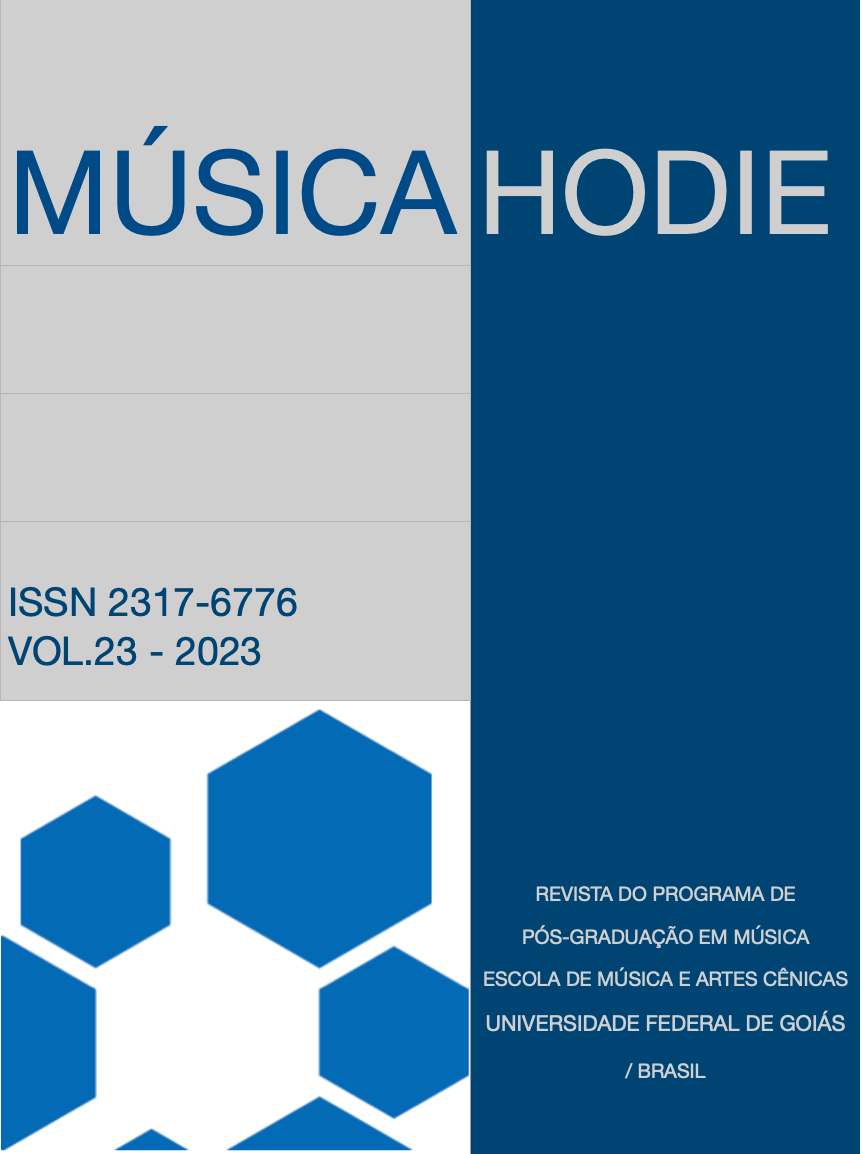Tai Chi de Zhao Xiaosheng
revisitando o significado e acréscimo do I Ching na contemporaneidade da semântica da música chinesa
DOI:
https://doi.org/10.5216/mh.v23.75844Palavras-chave:
Zhao Xiaosheng, piano solo, Tai Chi, I Ching, yin-yangResumo
A implementação da política de Reforma e Abertura da China em 1978 deu origem à música new wave chinesa, com uma forma idiossincrática de rebeldia, individualidade e inovação que trouxe uma ruptura na nova música chinesa do passado. Neste artigo, focamos em uma obra representativa para solo de piano, Tai Chi (1987), do compositor Zhao Xiaosheng, que explorou a antiga filosofia chinesa I Ching e a forma musical Tang Daqu da Dinastia Tang usando a teoria do conjunto de classe de notas de Allen Forte. Analisamos como Zhao empregou a sonata ocidental e o chinês Tang Daqu para refletir o dualismo yin-yang, com base na declaração do compositor na entrevista, nas análises dos pesquisadores e nas sugestões dos autores. Ao decodificar as permutações de classes de notas que correspondem aos 64 hexagramas do I Ching, a lógica matemática torna-se a principal forma de combinar o I Ching com a música serial. No entanto, a compatibilidade entre a expressão musical e os comentários dos hexagramas não se reflete no Tai Chi de piano solo. Assim, discutimos o emaranhado de uma formação de identidade composicional baseada em elementos contraditórios da cultura musical tradicional chinesa e da música erudita ocidental, com questões sobre o acréscimo e autenticidade na contemporaneidade e musicalização do antigo I Ching.















